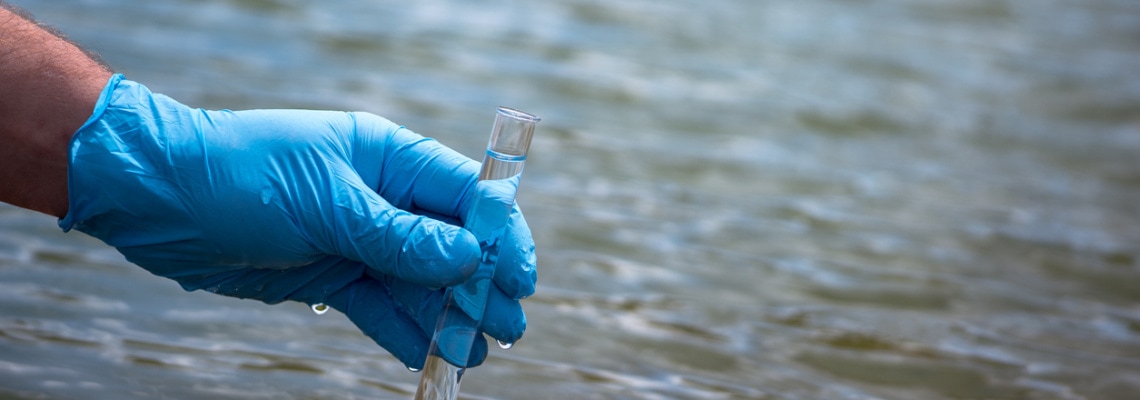Are you thinking about getting your wastewater tested? You may have some questions surrounding the process, like how samples are collected, what happens in the laboratory or what they mean when you get results.
Wastewater analysis provides insight into the contaminants that may be present in your water and defines what is being disposed of to a public sewer, a septic field or a discharging system. The USEPA issues standards for wastewater discharges that vary depending on the receiving environment. The six primary contaminants are Total Suspended Solids (TSS), Biological Oxygen Demand5 (BOD5), Total Nitrogen (Total-N), Total Phosphorus (Total-P), Fecal or E-Coli bacteria and sometimes other heavy metals.
Why it’s Important to Test Wastewater
These parameters are typical when testing wastewater because they define the impacts the discharge will have on human health and the environment. When compared with testing results of the incoming water supply, wastewater testing reveals what is being added, converted or removed in your house or other structure. Recent developments have shown that elements of the COVID virus increase in wastewater prior to a spike in reported cases of covid in the same watershed. This gives regulators and medical professionals a jump on when to expect surges in covid cases. This was originally discovered in Virginia by the Hampton Roads Sewer District and has now been adopted worldwide.
Knowing how much nitrogen and phosphorus is in your wastewater or what the BOD and TSS levels are, can tell you much about the impact to surface waters and groundwater. This type of thing can be an out-of-sight, out-of-mind situation until members of your household or a community start experiencing the consequences of contaminated water. Agricultural wastewater runoff and heavy metals can have serious health consequences, especially for those with weakened or compromised immune systems.
Laboratories use controls to ensure that test results have a comparable standard. They use scientific methods to preserve data quality and employ adaptable methodology to control for higher and lower detection limits. This includes biosafety measures and controls that safeguard data and ensure the accuracy of interpretation (especially important when this concerns public health!).
Hiring Professionals to Test Your Wastewater
When you are looking for a laboratory that performs wastewater testing near you, you will want to make sure that you are looking at hiring a state-accredited laboratory. If you are a resident of Northern Virginia, you will want to narrow your search to include only state-accredited laboratories in your area.
Joiner Micro Labs (JML) is a state-accredited lab testing water in Northern Virginia since 1991. Based out of Warrenton, Virginia, we have established a sterling reputation as accredited water testing professionals who deliver accurate and timely results. Our loyal customer base has been built on stellar customer service and responsiveness. Visit our website to learn more about who we are and what we can do for you.

